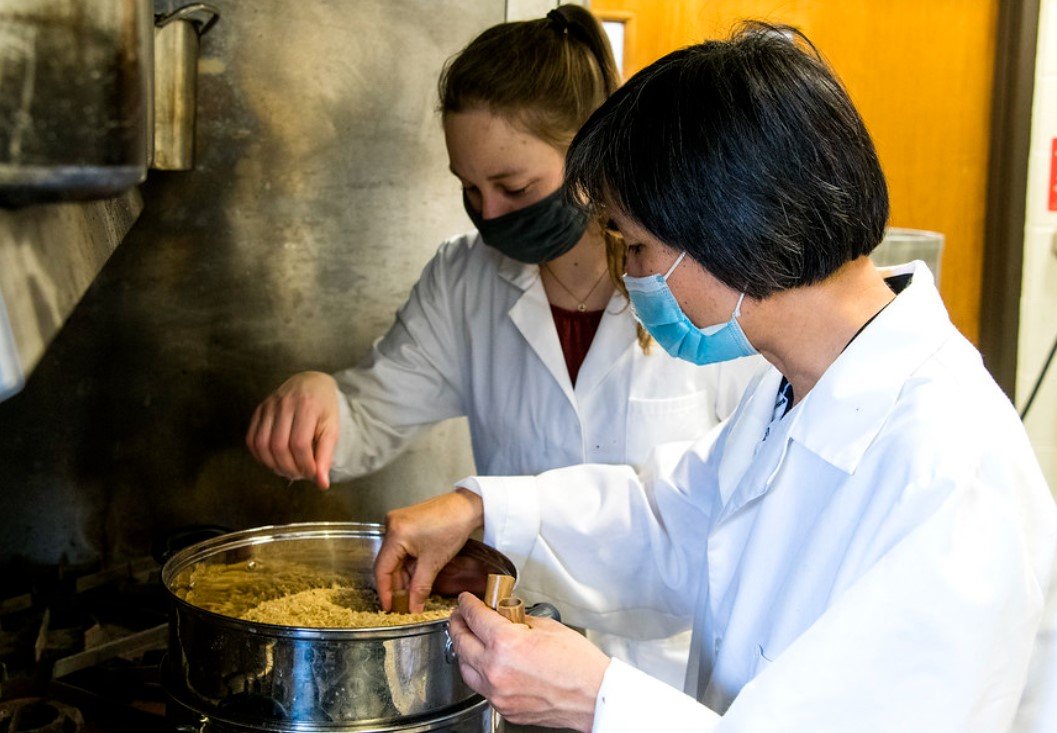Ever wondered why your pie crust turns out chewy yet tender? Chef Jack Bishop, now a senior content advisor at America’s Test Kitchen, shares the secrets behind perfecting classic dishes in his groundbreaking cookbook, The Science of Good Cooking.
Unveiling the Secrets Behind Perfect Pie Dough
In a revealing interview from 2012, Jack Bishop breaks down the intricate balance required to create flawless pie dough. “Water is one of the key parts of the perfect pie crust,” he explains. It’s essential not just for rolling out the dough but also for forming gluten, which gives the crust its desirable chewiness. But how can your pie dough remain both soft and easy to handle? The answer lies in a blend of scientific understanding and a touch of vodka.
The Role of Water and Gluten
Water plays a dual role in pie dough preparation. On one hand, it hydrates the flour, allowing gluten proteins to develop, which provides structure and chewiness. On the other, it keeps the dough pliable and easy to work with. Balancing these two effects is crucial for achieving the perfect texture.
- Hydration Balance: Too much water can make the dough sticky and tough, while too little can result in a crumbly texture.
- Gluten Development: Controlled gluten formation ensures the crust has the right amount of elasticity without becoming overly chewy.
Bishop’s innovative approach involves incorporating vodka into the dough. “Using a little bit of vodka helps because vodka doesn’t form gluten,” he notes. This clever substitution allows the dough to remain tender and flaky, as the alcohol evaporates during baking, leaving behind a light and delicate crust.

Debunking Common Cooking Myths with Science
Bishop’s expertise shines as he debunks long-held cooking myths, providing evidence-based insights that challenge traditional culinary practices. His work emphasizes the importance of understanding the science behind cooking techniques to achieve consistent and delicious results.
Myth vs. Reality
| Myth | Reality |
|---|---|
| Cold butter makes flakier dough | Cold butter helps create layers, but hydration balance is key |
| High heat ensures a crispy crust | Proper temperature control and ingredient ratios are essential |
| Overmixing batter improves texture | Overmixing can lead to toughness due to excessive gluten formation |
One such myth Bishop tackles is the belief that high heat alone is sufficient to ensure a crispy pie crust. While heat does play a role, Bishop emphasizes that the ratio of ingredients and the method of preparation are equally important in achieving the desired texture.
Innovative Techniques for Everyday Cooking
Beyond pie dough, The Science of Good Cooking explores various techniques that transform everyday meals into culinary masterpieces. Bishop’s approach is grounded in scientific principles, making complex methods accessible to home cooks.
- Temperature Control: Understanding how different temperatures affect ingredient behavior and final dish outcomes.
- Ingredient Interactions: Exploring how the combination of specific ingredients can enhance flavor and texture.
- Cooking Methods: Mastering techniques such as sautéing, roasting, and braising through a scientific lens.
These techniques not only simplify the cooking process but also empower cooks to experiment and innovate in the kitchen with confidence.
The Impact of ‘The Science of Good Cooking’
Since its release, Bishop’s cookbook has revolutionized the way home cooks approach meal preparation. By blending scientific knowledge with practical application, he has made advanced culinary techniques attainable for everyone.
Reader Feedback and Success Stories
Many readers have praised the cookbook for its clarity and actionable advice. Home cooks report significant improvements in their cooking skills and a deeper understanding of how to manipulate ingredients and techniques to achieve desired results.
- Enhanced Confidence: Empowering cooks to experiment without fear of failure.
- Consistent Results: Providing reliable methods that ensure dishes turn out perfectly every time.
- Educational Value: Offering insights that extend beyond recipes, fostering a lifelong appreciation for the science of cooking.
Future Endeavors and Continued Research
Chef Jack Bishop continues to expand his research, exploring new areas of culinary science to further enhance his expertise and contributions to the culinary world. His ongoing work promises to bring even more innovative solutions to common cooking challenges.
Upcoming Projects
- Advanced Culinary Techniques: Delving deeper into molecular gastronomy and other cutting-edge cooking methods.
- Sustainable Cooking Practices: Researching ways to make cooking more environmentally friendly without compromising on taste or quality.
- Interactive Learning Tools: Developing digital resources and workshops to make culinary science more accessible to a wider audience.
Bishop’s dedication to advancing the science of cooking ensures that his influence will continue to shape the culinary landscape for years to come.
















